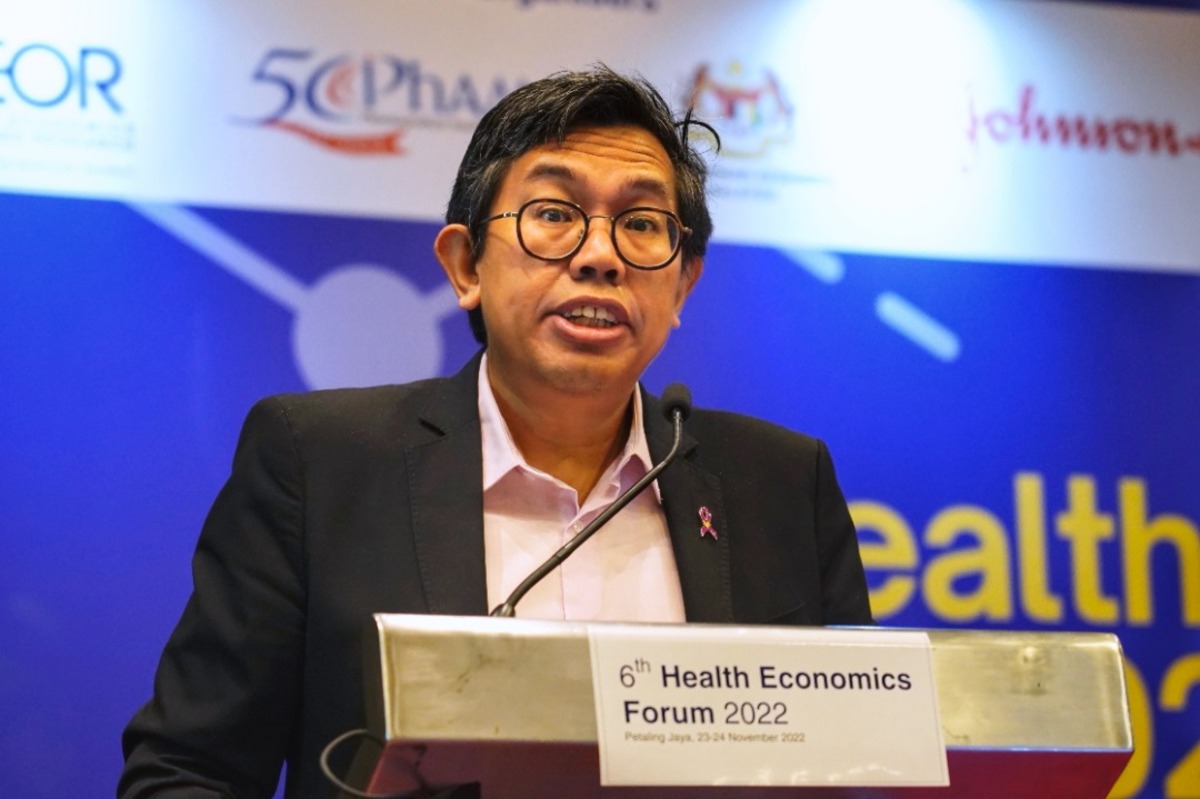KUALA LUMPUR, Nov 28 – The Galen Centre for Health and Social Policy has urged the Anwar Ibrahim administration to table and pass the contentious tobacco control bill in its first 100 days of office.
Galen Centre chief executive Azrul Mohd Khalib noted that a lot of work went into the Control of Tobacco Product and Smoking Bill 2022, after a bipartisan Dewan Rakyat special select committee in the 14th Parliament suggested several revisions to the bill that proposes a ban on tobacco and vape for those born from 2007, also known as the generational end game (GEG).
“This is low-hanging fruit because it’s a clear example of how different parties from different points of view, different ideologies, were able to work together to produce a multi-partisan bill — it’s not bipartisan even – that’s able to be then voted on and passed. It’s already on the table. The work has already been done,” Azrul told BFM presenter Tee Shiao Eek on the radio station’s Health & Living: Doctor in the House segment last Friday.
“It’s an easy win. You can actually table it in Parliament in the next session and vote on it. It’s a clear example of how we can all sit down at the table and work together to produce something that has benefit.”
Among other proposed amendments, the parliamentary special select committee (PSSC), headed by then-Health Minister Khairy Jamaluddin, agreed to drop the ban on possession of tobacco or vape products for anyone born from January 1, 2007, but decided to maintain prohibitions on smoking or vaping, and on purchase of such products, for this cohort.
The PSSC from the 14th Parliament had also agreed to reduce the maximum fine for GEG offenders to RM500 from RM5,000, with possibility of community service.
Khairy, under the-then Ismail Sabri Yaakob administration, failed to table the tobacco bill for second reading and debate before Parliament was dissolved last month, amid serious concerns from several Pakatan Harapan (PH) MPs and civil rights advocates about wide enforcement powers, economic impact, and violation of personal liberty.
Prime Minister Anwar’s unity government now has two-thirds majority in the Dewan Rakyat, after Gabungan Rakyat Sabah joined the PH-led administration that also comprises Barisan Nasional (BN) and Gabungan Parti Sarawak (GPS).
Azrul further urged the next health minister to table the Health White Paper in Parliament or to publish the document that is meant to propose health care reforms over the next 15 years.
Khairy previously formed a 13-member advisory council for the Health White Paper, co-chaired by former Health Minister Dr S. Subramaniam and Axiata Group chairman Shahril Ridza Ridzuan, but did not manage to set up a Health Reform Commission to monitor the implementation of proposals under the Health White Paper that has yet to be published.
“There has been a lot of effort, a lot of work, and a lot of contributions towards looking at introducing health reforms into the Malaysian health care system, which were identified by the White Paper,” Azrul said.
“A lot of people contributed a lot of their forward thinking and hope, most importantly, into seeing changes, much needed changes that predate the previous health minister, all the way back to 20 years ago.
“We’re hoping that the next minister, whoever she or he may be, will be able to bring that White Paper out and to be able to table it in Parliament or to publish it so that we can use the recommendations from that White Paper.
“There’s no point having a document which no one is able to see or reference the paper because it hasn’t been made public.”
PH’s manifesto for the 15th general election pledged the establishment of a Health Commission to monitor the execution of the National Health Reform Plan with the Economic Planning Unit, Ministry of Finance, Ministry of Health, and Ministry of Education to solve systemic issues, including health care financing, decentralisation of power, and public-private partnership.
Azrul urged the PH-led unity government not to reinvent the wheel when it comes to health care reform, saying that the proposals under Khairy’s time in office came from people who have been working in the sector for decades.
“It’s important for us to realise that we should be able to look at these ideas and provide them the attention and merit they deserve, regardless who championed it in the past. We need to do this now.
“If we start all over again, we are wasting time.”
The first 100 days of the next health minister’s office, said Azrul, should focus on low-hanging fruit that is “oven-ready”.
“Talk to people, listen to people. This is very important. You can have your own ideas when you come into office, but honestly, I would talk to people in the Ministry of Health and also to the other ministries, and most importantly, patients and patient groups who are able to tell you what can be done within that period and be achieved.”








